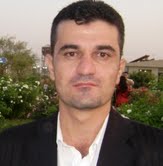
By Mohammed Hussein:
Recent meetings between Iraqi Prime Minister, Nuri Al- Maliki, and president of Iraq’s Kurdistan Region, Massoud Barzani, have posed many questions about these leaders’ simultaneous hostility and friendship. What unites them, and what makes them stand against each other are topics that have been discussed in some Iraqi and international media. But no one mentioned the regime quality that unites Iraq and Kurdistan and makes both leaders need each other in matters where their authoritarian interests may be threatened. This is a factor that should be seen behind these leaders’ peace and war: their authoritarian ambitions within fake models of democracy.
Understanding the level of democracy in both the Kurdistan Regional Government (KRG) and the Iraqi federal government is very complicated. There is a big political elite who use all their skills they just to show how democratic they are, although they are not: what they offer with their “strange democracy” is just using some democratic institutions and concepts to cover their authoritarian roots. Here Larry Diamond’s concept of a ‘hybrid regime’ could be helpful in understanding what type of regimes we have in Kurdistan and Iraq.
In both regimes there are elections, but these are not free and fair in terms of if giving everyone an equal chance to run for office, having freedoms, a minimal level of transparency and measures to prevent election fraud. In both models we also can see a strong opposition in parliament but their chance to take office is minimal: in Kurdistan, due to the PUK and KDP’s monopolization of economic and political life, it is difficult for opposition parties to take office, and the same problem is present in Iraq also because of the sectarian, ethnic conflicts.
In Kurdistan, we haven’t seen a different ruling elite since 1991 and so the same corrupt elite still continues to strengthen its position in every aspect of life. In Baghdad too, factions of a small, ethnic, sectarian group have competed with each other since 2004 without bringing any meaningful change for ordinary people. Therefore, the Iraqi political situation could be classified as a competitive authoritarian system, and it is really far from liberal democracy.
Back to Kurdistan, what Larry Diamond described such a ‘hegemonic party system’(1) is exactly the model of so-called ‘Democracy’ in the KRG. This model does not have standards that Samuel Huntington mentioned as basic criteria for a real democracy, such as: “Its most powerful collective decision makers are selected through fair, honest, and periodic elections in which candidates freely compete for votes.”(2) In Kurdistan both ruling parties have controlled all economic, social and cultural dimensions of life: no businessman can work without sharing with the elite; no journalist has access to get information for publishing outside of the rulers’ will.
In spite of having the same poor level of democracy, both the KRG and the Iraqi federal governments have their different problems and challenges. In the KRG, there are strong administrative foundations, security forces, relatively good public services, a dominant secularist trend and, most importantly, national consensus. But, in the rest of Iraq, governmental institutions are very weak, security forces even can’t protect themselves, religious sectarian identities are more dominant than Iraqi citizenship and no one considers him/her-self as an Iraqi. They are all Arabic, Kurdish, Shia, Sunni, Yazidi and Turkman: simply they label each other with any identity except with being an Iraqi.
However, there are some points that show democratic efforts in Iraq are more encouraging than in the KRG, in terms of having an active parliament and institutions for practicing accountability. For example, the Iraqi commission of integrity has investigated hundreds of senior officials – including some ministers – and punished many of them for alleged corruption. But, in Kurdistan, parliament does not have this active role and even its efforts to form a local commission of integrity have not yet succeeded. In a press release, published on May 14 2013, Abdulah Mala Nury, a member of the KRG parliament from the Gorran movement said: “Questioning governmental officials and asking about their responsibility is a kind of bizarre duty for our parliament.”
Despite of all these differences, it is easy to see how the situations in both Iraq and Kurdistan are pseudo democracy or ‘fake democracy’. As Diamond explained, in hybrid regimes there is a strong trend to portray themselves as example of democracy although the covered authoritarian machines are at work behind every exercise of power.
(1) ‘Thinking about hybrid regime’ Larry Diamond. Page 22
(2) The same source. Page 22-23
Mohammed Hussein lives in Sulaimanyah where he is an editor for Awenene.com and an international study student at the American University of Iraq-Sulaimanyah . He has also worked as a translator and translated three books into Kurdish.
muhe79@yahoo.com
Copyright © 2013 Kurdistantribune.com
.jpg)



[…] There is another factor to unite Barzani and Maliki […]